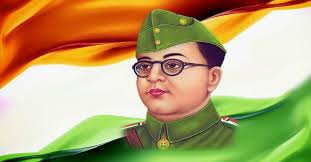Subhas Chandra Bose: Unraveling India’s First Prime Minister Debate
Decoding Subhas Chandra Bose’s Azad Hind Government: A Historical Insight
Netaji’s Azad Hind: A Defining Moment in India’s Independence Journey
The Legacy of Subhas Chandra Bose: Azad Hind and the Quest for Freedom
From Controversy to Clarity: Understanding Subhas Chandra Bose’s Political Impact
Credit: Adda247 News
06.04.2024: In a recent interview, actress and BJP leader Kangana Ranaut sparked a social media frenzy by mistakenly referring to Subhas Chandra Bose as India’s inaugural Prime Minister. Despite the factual inaccuracy, this incident shed light on Bose’s establishment of a self-proclaimed government called Azad Hind, where he assumed the role of Prime Minister. Here’s a comprehensive look at this often-overlooked historical event.
On October 21, 1943, amidst the turmoil of World War II, Subhas Chandra Bose, affectionately known as Netaji, forged the Azad Hind (Free India) government in Singapore. In a bold move, he declared himself not only as the Prime Minister but also as the Head of State and Minister of War. Leading the charge alongside him was Captain Dr. Lakshmi Swaminathan, overseeing the women’s organization and commanding the Rani Jhansi Regiment, which stood as Asia’s pioneer women-only battle brigade within the Indian National Army.
Azad Hind, also known as Arzi Hukumat-e-Azad Hind, garnered support from Japan, Nazi Germany, the Italian Social Republic, and their respective allies. This government claimed authority over Indian civilians and military personnel in Southeast Asia, which was then under British occupation. They introduced distinct institutions such as their currency (the Azad Hind currency), established courts, and implemented a civil code.
Bose’s primary objective was to ignite an armed struggle aimed at liberating India from British dominance under the Azad Hind banner, viewing it as the sole path to Indian independence. However, Bose’s demise marked a turning point for the Azad Hind movement, coinciding with the end of World War II in 1945 following the Axis powers’ defeat.
Despite the controversy surrounding Kangana Ranaut’s statement, leaders like Prime Minister Narendra Modi and Defence Minister Rajnath Singh have consistently praised Bose and the Azad Hind government for envisioning a robust, united India. They emphasize Bose’s enduring legacy as an inspiration not only to Indians but also to individuals worldwide fighting for self-determination and freedom.

